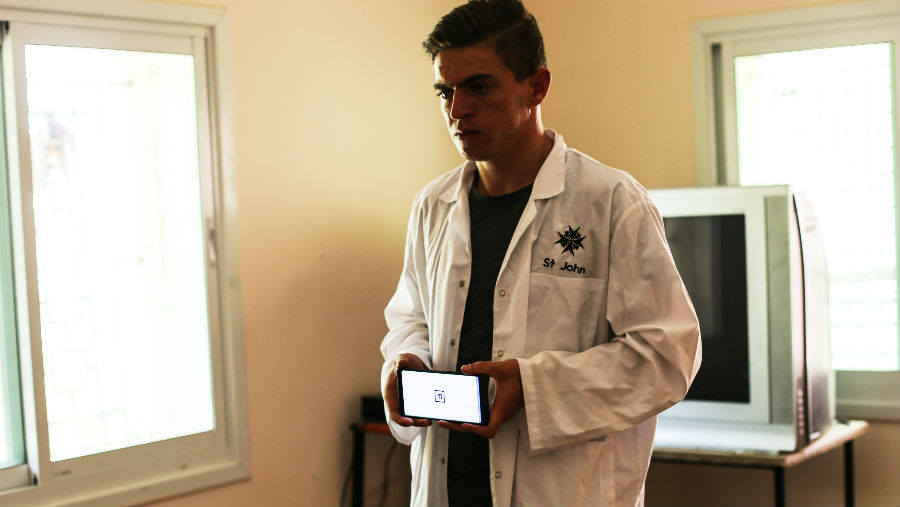Join a powerful, unprecedented alliance for better eye health for all.
Join IAPB-
Choose an alternate language here

RAAB is a population-based survey of adults age 50 years and over, using rapid examination techniques. Over 200 RAABs have been completed worldwide, providing the majority of data on the prevalence and causes of visual impairment globally.
The first study in the oPt, undertaken in 2008 by SJEHG, highlighted the prevalence of diabetes in the region which lead to the creation of a successful Diabetic Retinopathy Screening Programme. This programme has been rolled out in the West Bank, Gaza and Palestinian Refugee Camps in Jordan, and also trained general healthcare workers across the oPt to recognise signs of the condition.
Dr Islay Mactaggart, a RAAB trainer and epidemiologist from the London School of Hygiene and Tropical Medicine (LSHTM), visited SJEHG in July to provide training to the teams. This RAAB is the first to use “RAAB7”, the next generation of the RAAB methodology which capitalises on emerging digital tools and techniques.
RAAB study coordinator, Dr Nahed Mikki, explains the importance of this recent study:
“The study will identify causes of blindness and poor vision among Palestinians aged 50 years and above and will also identify barriers to cataract surgery among participants with cataracts. These findings will guide SJEHG in planning and prioritizing eye services.”
As the current RAAB study is conducted 10 years after the first RAAB study in 2008 trends of causes of blindness and poor vision will be able to be studied and analyzed.
Two very important components were added to the current RAAB study. The first component will focus on diabetic retinopathy. It aims to identify possible hidden cases of diabetes. These cases, as well as previously diagnosed diabetes patients, will undergo a full retinal exam to identify diabetic retinopathy. They expect there to be a lot of patients who have never been examined for this condition previously, as was the case with previous studies.
The second component is the Washington Group Disability Questions. These questions will identify the prevalence of disability in six domains. These domains are: vision, hearing, walking and climbing steps, remembering and concentrating, self-care and communication. It will be the largest study on disability in this age group.”
Data collection is now underway and expected to be complete by February 2019. SJEHG thank the Fred Hollows Foundation, CBM and the German Ministry of Foreign Affairs for enabling this study to happen, and the LSHTM for their coordination and training.